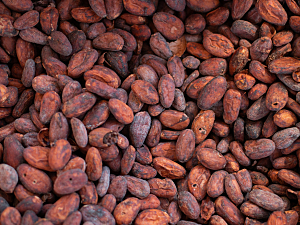Cocoa has a long history of medicinal use, and some evidence suggests cocoa products are associated with modest reductions in the risk of cardiovascular disease (CVD).
Researchers at Brigham and Women’s Hospital conducted the first rigorous, large-scale trial of the ability of long-term cocoa flavanol supplementation to prevent CVD and cancer. In The American Journal of Clinical Nutrition, they report that cocoa extract supplementation did not significantly reduce total cardiovascular events among older adults but reduced CVD death by 27%. The authors are Howard D. Sesso, MD, MPH, associate director of the Division of Preventive Medicine, JoAnn E. Manson, MD, MPH, DrPH, chief of that Division, and colleagues.
Methods
The COcoa Supplement and Multivitamin Outcomes Study (COSMOS) was a randomized, double-blind, placebo-controlled, 2 × 2 factorial trial. Participants were randomized to one of four arms in equal proportions: active cocoa extract and active multivitamin, active cocoa extract and multivitamin placebo, active multivitamin and cocoa extract placebo, or both placebos.
Notably, the cocoa supplement tested contains theobromine and other potentially bioactive components of the cocoa bean, rather than just cocoa flavanols.
A total of 21,442 U.S. adults were randomized between April 2016 and March 2018. They included 12,666 women ages ≥65 and 8,776 men ages ≥60 who, at baseline, had no history of myocardial infarction, stroke, or recently diagnosed cancer (within the past two years).
Treatment continued through December 31, 2020; the median treatment period was 3.6 years.
Primary Outcome
The current paper reports only the data on the cocoa extract component, and a separate paper reported on multivitamins. The primary outcome of the cocoa extract intervention was composite total CVD events, including incident myocardial infarction (MI), stroke, coronary revascularization, cardiovascular mortality, carotid artery surgery, peripheral artery surgery, or unstable angina requiring hospitalization.
Participants using cocoa extract experienced only a small but nonsignificant reduction in the primary outcome of total CVD (HR, 0.90; 95% CI, 0.78–1.02).
Other Outcomes
-
- CVD death—Significant 27% reduction (HR, 0.73; 95% CI, 0.54–0.98)
- Other individual CVD outcomes (MI, stroke, revascularization, ischemic stroke, and hemorrhagic stroke)—No significant effects
- All-cause mortality—An 11% nonsignificant reduction (HR, 0.89; 95% CI, 077-1.03)
- Total invasive cancer, prespecified site-specific cancers, and cancer death—No significant effect
Participants randomly assigned to the cocoa extract also had a significant 16% reduction in major CV events, a rigorous composite outcome that included MI, stroke, and CVD death (HR, 0.84; 95% CI, 0.71–0.99), but this endpoint was not prespecified.
In analyses among adherent participants (taking at least 75% of their study pills), the HR for the primary endpoint of total CVD events was reduced by 15% (HR, 0.85, 95% CI, 0.72-0.99), and CVD death was reduced by 39% (HR, 0.61, 95% CI, 0.42-0.90).
Adverse Effects
Overall, the cocoa extract intervention appeared safe and well tolerated. The cocoa extract group was 6% more likely than the control group to have nausea (HR, 1.06; 95% CI, 1.02–1.11). On the other hand, participants in the cocoa extract group had a significant 15% reduction in migraine and a significant 5% reduction in flulike symptoms and other headaches.
Future Directions
It’s hoped these results suggesting cardiovascular benefits for cocoa extract will prompt subsequent trials to clarify its potential importance for public health.
The COSMOS Research Group plans to publish findings from ancillary studies that examine the effects of cocoa extract supplementation on cognition, eye health, falls, physical performance and other CVD- and aging-related outcomes.
